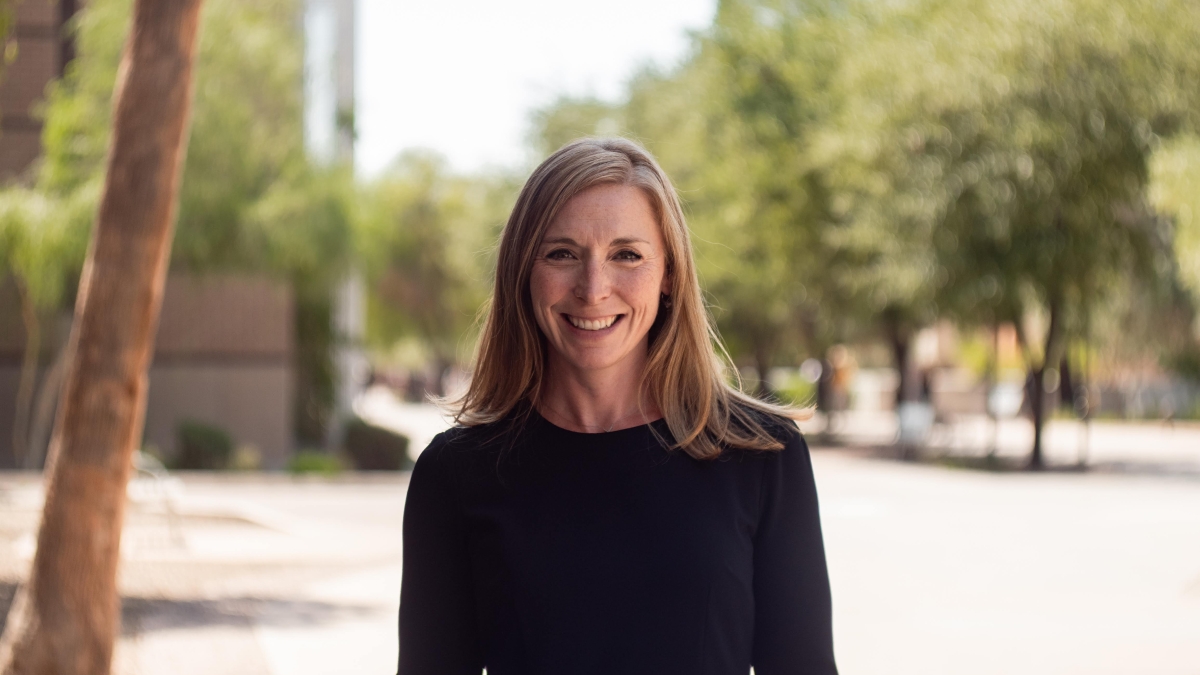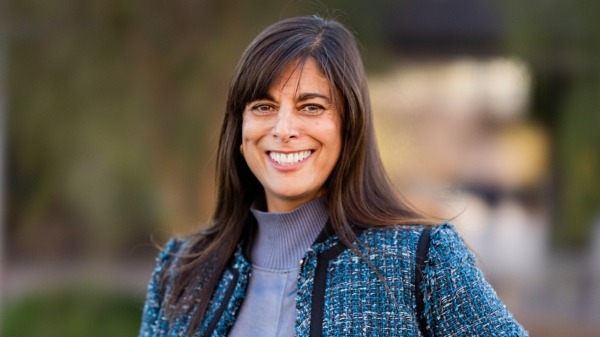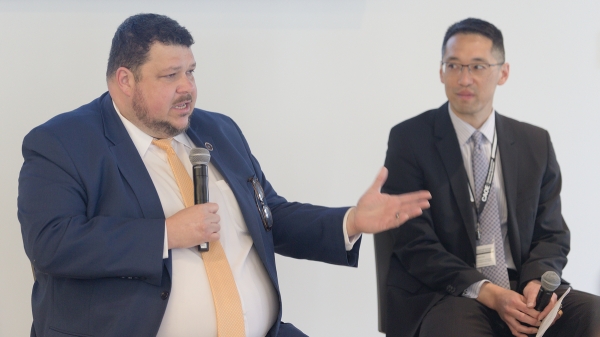Bedtime media use linked to less sleep in children who struggle to self-regulate behavior

Leah Doane, associate professor of psychology. Photo courtesy of Robert Ewing.
For some children, screen time before bed translates to less sleep.
According to a study from the Arizona State University Department of Psychology, media use in the hour preceding bedtime impacts how kids sleep, especially children who struggle to self-regulate their behavior. Frequent media use before bed in these children predicted later bedtimes and less sleep. The work was published online in Psychological Science on June 19.
“Among kids who used the same amount of media in the hour before bed, we found differences that were explained by a personality characteristic called effortful control,” said Leah Doane, associate professor of psychology at ASU and senior author on the paper. “Kids who score low on measures of effortful control are the ones who struggle to wait to unwrap a present or are easily distracted. We found a strong association between media use in the hour before bed and when these kids went to sleep and how long they slept. Media use before bed was not associated with the sleep of kids who scored high on measures of effortful control.”
The research team spent a week following 547 children, aged 7-9 years. The participant group was socioeconomically diverse and lived in rural and urban areas. The parents kept daily diaries that tracked the children’s media use and sleep patterns. They also completed a survey that asked about their children’s temperament, including their ability to self-regulate behavior.
For the entire week, the children wore specialized wrist watches called actigraphs that tracked their movement and also ambient light. The actigraph data gave the research team detailed information about when and how long the children slept.
The children slept an average of eight hours a night and used media before bed for an average of five nights during the study week. Children who did not use media before bed during the study week slept 23 minutes more and went to bed 34 minutes earlier than children who used media most nights during the study week.
“Media use was generally associated with a shorter sleep duration, but this effect was most pronounced in children with low effortful control,” said Sierra Clifford, a research scientist at ASU and first author on the paper. “The impact of media on sleep was also an average effect, meaning that it reflects habitual media use rather than occasionally staying up late to watch a movie.”
The children who scored low on measures of effortful control slept the least amount of time when they consistently used media in the hour before bed during the study week. These children slept approximately 40 minutes less per night. Media use before bed did not affect the sleep of children who scored high on effortful control, which was approximately 35% of the study participants.
“Media exposure mattered for the children who measured lowest in effortful control,” Clifford said.
Children with low effortful control might struggle with switching their attention from watching media before bed to calming down and falling asleep. But because effortful control is a personality characteristic, it is more difficult to change.
“Instead of parents wondering how to help their child better regulate their behavior, they can try to focus on creating more consistent sleep and media use schedules,” Doane said.
This study was funded by the Eunice Kennedy Shriver National Institute of Child Health and Human Development. The data were from the Arizona Twin Project, which is led by ASU’s Kathryn Lemery-Chalfant, Mary Davis and Doane. Reagan Breitenstein, who earned her doctorate at ASU, Kevin Grimm, professor of psychology, and Lemery-Chalfant also contributed to the study.
More Science and technology

The science behind chronic stress
Stress comes in many shapes and sizes. There’s the everyday stress of preparing for a final exam or being stuck in traffic. And…

ASU planetary scientist to be inducted into the National Academy of Sciences
The National Academy of Sciences is inducting School of Earth and Space Exploration Director Meenakshi Wadhwa into the 2023 class…

Unlocking the potential of AI for homeland security
“Can we do what we're doing now cheaper, more efficiently, more effectively?” Adam Cox, director in the Office of Strategy and…